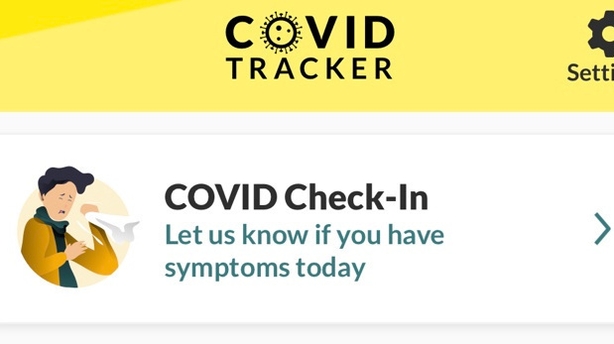Employers are to be notified if an employee tests positive for Covid-19 but without naming the worker involved, under new rules being introduced by the Health Service Executive this week.
However, the HSE stresses that it remains the responsibility of the employee to inform their employer if they test positive for the virus.
Up to now, the HSE policy was that it only informed employers that an employee had been diagnosed with Covid-19 "in exceptional circumstances where under MOH (Medical Officer of Health) legislation public health may decide otherwise".
However, some employers have raised concerns about the potential risk of spreading Covid-19 within a workplace, where there is a delay in informing a business of an employee's positive status.
Responding to a query from RTÉ News about workplace risks of delayed contact tracing, the HSE confirmed: "This week we have introduced a new step where after employees receive their results we will communicate results in aggregate, with no names, to the employers. It remains the responsibility of the individual to inform their employer if they are positive."
The HSE says most contact tracing is done by its contact centres "staffed by trained people who are not public health doctors".
The three-step contact tracing process is managed by the Covid Care Tracker ICT system, operates seven days a week from 8am-8pm, and permits hundreds of contact tracers to work on the system at the same time.

Call 1 from a "clinical" person informs the confirmed case of their result, and advises them to self-isolate for 14 days.
Call 2 is made by a non-clinical person who captures the details of all close contacts of the confirmed case from 48 hours before the onset of symptoms, though there are exceptions at this point.
The HSE notes that "... if the setting where that person works is complex, for example a residential care setting, then only the non-workplace contacts are captured, and the case is referred to the relevant Public Health department. The PH department will then manage the case and as required engage directly with the facility."
Call 3 involves each close contact getting a call to advise them that they have been in contact with a confirmed case, and that they must now restrict their movements for 14 days.
The HSE says it has excess contact tracing capacity in place at the moment, but expects to recruit more people during this month.
As of last Monday, over 220 people were "fully deployed" to contact tracing, and in the week to 31 August, just under 5,000 calls were made.
The HSE insists it will also have "standby capacity to significantly increase those numbers" if a surge in confirmed cases occurs.
It says that at present approximately 800 contact tracing calls per day are being made, and the median turnaround time to complete a case (all three calls) is 0.8 of a day.
Over 1,700 people were initially trained in contact tracing, most of whom were redeployed staff from the HSE, the Defence Forces, the Revenue Commissioners or employees from third-level institutions, mainly UCD.
However, that figure has fluctuated significantly during the course of the pandemic.
By early April over 600 people were deployed to contact tracing.
In the week ending 18 April, there were an average of 210 contact tracers working each day, with over 18,000 calls made that week.
By the week ending 2 May, approximately 70 people were contact tracing each day, with over 8,000 calls made.
However, as the number of confirmed cases declined and in line with the phased ending of the lifting of restrictions, the HSE consolidated its contact tracing into a single centre in Galway with the capacity to handle over 100 confirmed cases per day, and clinical staff were redeployed back to their normal posts.
As the number of confirmed cases rose in early August, and in line with the HSE's escalation plan, additional contact tracing staff have been deployed, and more centres have been opened.
ISME seeks balance between privacy, health and safety
The small business lobby group ISME said notification of Covid-19 test results to employers was an issue where a correct balance between personal privacy and public health and safety needed to be achieved.
Chief Executive Neil McDonnell said that advising a business that "a" member of staff had tested positive for the coronavirus placed the company in an "invidious" position, especially if they had a significant number of employees, and did not know who the infected individual was.
"Short of closing the workplace, it gives the employer few options on protecting their full workforce.
"It also potentially exposes an employer to civil action, and potentially to enforcement action by the Health and Safety Authority," he added.
Mr McDonnell urged the Government to address the issue as a matter of urgency.







